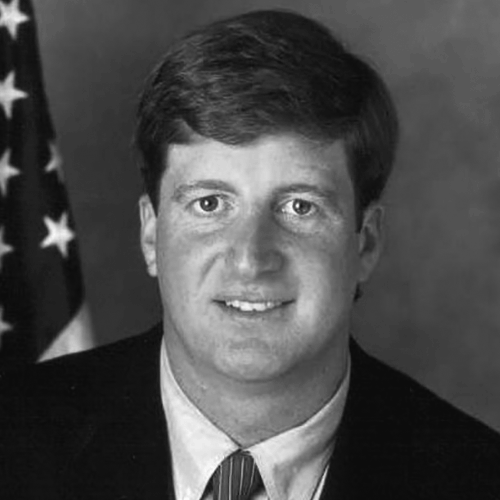
Patrick J. Kennedy
Former U.S. Representative (D-RI); Founder, The Kennedy Forum
My name is Patrick J. Kennedy. I am a husband, a father, a former member of the U.S. House of Representatives, and founder of The Kennedy Forum. I am also someone who lives with bipolar disorder and is in recovery from addiction.
Growing up, my family was no stranger to mental illness and addiction, but we operated under a code of silence, much like other families. I spent much of my life self-medicating until a series of events finally opened my eyes. After going public with my struggles, almost immediately, many of my colleagues in Congress, constituents, and friends reached out to share similar struggles. The peer support was critical as I started the next chapter of my life.
Finding support
It made me realize how powerful shared experiences can be in opening hearts and minds. This is exactly how movements gain momentum, one person at a time. It’s called advocacy. And it’s how we will eliminate stigma and create a stronger mental healthcare system — one with better access, better integration, and better results.
Even before COVID-19 hit, our nation was already in the midst of a mental health crisis. One in 5 people has a mental health condition and 1 in 12 lives with addiction. Historic levels of overdoses and suicides continue to devastate families from coast to coast. Sadly, the pandemic may further fuel this fire, with implications that could reverberate for years to come. The need for thoughtful reform to our mental healthcare system could not be more urgent.
Mental Health for US
That’s why, last year, I was honored to join former U.S. Senator Gordon Smith (R-OR) in co-chairing Mental Health for US, a nonpartisan, educational coalition designed to elevate mental health and addiction in policy conversations during the 2020 election cycle. The bottom line is, our policymakers need help. Identifying solutions for a broken mental healthcare system is no easy task. The process must be informed by experts, advocates, and those with lived experience.
So far, almost 100 organizations have signed on to join the Mental Health for US coalition, inform the campaign’s policy platform, and help spread the word by activating their members and followers.
But the best part about Mental Health for US is that you don’t have to be part of an organization or have a policy background to get involved. Here are some simple steps anyone can take during this election year:
- Contact your elected officials and tell them which issues you care about most (and why).
- Register to vote and actually vote. It counts — during presidential elections and local and state elections. To check your registration status, see registration deadlines, and locate your polling place, visit mentalhealthforus.net/voters.
- Help others register to vote. Ask your friends, family, and neighbors they’re registered to vote. If not, offer to walk them through the process. Take the pledge to help five people register to vote by texting WEVOTE to 444-999 or visiting mentalhealthforus.net/pledge.
- If visiting a polling place will be a challenge due to work, health, or transportation issues, encourage people in your network to apply for an absentee or mail-in ballot. Given the COVID-19 pandemic, voting by mail may become the standard.
- Educate your friends and families on the changes we need to improve mental healthcare. The Mental Health for US policy platform is a good place to start.
I encourage everyone reading this to take a stand for mental health — support a bipartisan movement that will empower our elected leaders to take action. Mental Health for US is already making a difference. Join us.

